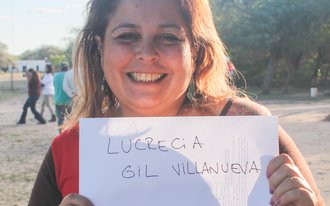'Comfortably staying home with the family': three women in Latin American villages about the Covid-19 crisis
"The Covid-19 crisis is affecting everyone, but in different ways. In some countries, people are feeling the consequences less than in others, in cities the problems are completely different to in the countryside, and men are suffering from the restrictions totally differently to women. Some of the organisations that we work with in Latin America talked to rural women about the effects of the crisis on their everyday lives and what they are doing to keep their heads above water. Below is a small selection from these conversations (freely translated from Spanish) to give some idea of the situation women in remote areas are finding themselves in, of the enormous solidarity they are experiencing and of the solutions, which largely lie in stimulating local food production." - Danielle Hirsch
Lucrecia Gil Villanueva, Argentina
"All small villages in the region are cut off. There are no ways to get from one to the other. Now things are going reasonably well, but it is getting more and more complicated with everything at a standstill. One person per family leaves the house to go shopping. Charcoal production, which most people in our village depend on for their livelihoods, is continuing as usual, but we are afraid that more and more buyers will stay away."
"For people who already had a general benefit, it was easy to apply for help from the IFE (Ingreso Familiar de Emergencia; emergency benefit).But a lot of people work in the informal sector and it is much more difficult for them to apply for financial support, if only because they have no access to internet. Luckily they often get help from people who do have Wi-Fi."
"It is now even more important to breathe new life into local food production and local markets and to create more 'green strips' to grow food in small villages in the hinterland. That was already badly needed before the crisis to safeguard local food production, but the crisis has made it even clearer. Something else that the crisis has made very clear is the serious problem of domestic violence that we face in the countryside."
Yoseling Guardado, El Salvador
"We have to stay at home all day. On the radio we hear everyone, the government, including the president, telling us 'stay at home'. Sounds easy, doesn't it? It's easy to paint a romantic picture of a happy family that stays at home, but they have no idea of how it is if you no longer know how to survive. How you can put a meal on the table for your family, as you are always expected to do as a good 'Salvadoreña', while you have no money go shopping. Because you earned that money selling pies on the street, and that is no longer allowed. If you do it, you are picked up by the police. It's very unfair."
"We have had to find ways to survive, despite everything. Like doing our shopping in groups: instead of 20 people going to the market separately, two now go and buy everything for 20 families. We have also set up a loan system, so that people who have no money can borrow from those who are a little better off."
"This pandemic is very serious, but even worse is the fact that a small country like ours has allocated two billion dollars to fight it without making a clear plan as to where that money should be spent. What is very clear, is the authoritarian response of the government, the repression, and the violations of the rights of a large part of the population. The organisations that should be protecting us, like the army and the police, have turned into instruments for using violence against us. Against women, too! Women who are doing their necessary shopping or are fetching water from the stream for their families. All we can do is support each other as women from a distance, let each other know that we are not alone and that we will find a solution together. And keep repeating that together we are invincible."
Yenny Rodriques, Bolivia
"Indigenous peoples and farming communities in protected areas in Bolivia have been under threat for many years from mining companies that pay little attention to the environmental laws in our country. Activists like me have been working for decades to protect indigenous territories from these companies and now, during the current crisis, that is more urgent than ever. Many communities are even more isolated than ever, and have been totally forgotten by national and regional governments."
"The employees of the oil companies active in the indigenous areas and in national parks come from the whole country and continue to work through the crisis with no form of protection at all. The companies completely ignore the protocols in place to prevent the virus from spreading, and that is a serious concern for everyone, especially indigenous communities. Many complaints have been lodged, but nothing has been done with them."
"Another serious cause for concern is that, while everyone is in quarantine, laws are being pushed through and agreements made that benefit the agro-industry and the mining and oil companies. Even now the oil price has fallen so sharply, the government is not thinking about other ways to generate income and promote development, and they keep using our indigenous territories."
Sources:
These stories are being collected by two of our partner organisations in Latin America: by FCAM from Nicaragua as part of their initiative "Defensoras Territoriales: Voces de Resiliencia antes la crisis" and by Fundación Plurales from Argentina which, together with FMS, has set up the initiative "Como se está viviendo la pandemia en comunidades rurales" and produced a written series 'Mujeres rurales en época de pandemia'.
Within the GAGGA programme, Both ENDS works closely together with FCAM (lead organisation) and Fundación Plurales. Organisations such as these work very closely with local communities and groups and play an important role. They ensure that support and funding actually find their way to these communities and groups – which are often forgotten by governments, policy-makers and financiers. And they make the daily reality of the people they work with visible, so that they will not be as easily forgotten in the future.
Read more about this subject
-
Blog / 12 May 2020
Post-corona economy: five recommendations for the Dutch government on achieving the SDGs and the goals of the climate agreement
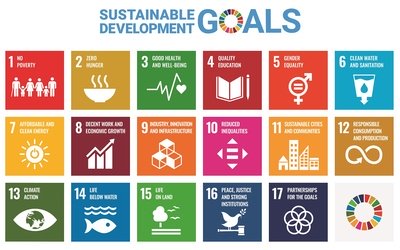
By Daniëlle Hirsch and Maria van der Heijden
The social debate on the Netherlands' role in the global economic crisis is now in full swing. At the centre of the debate is the question: how can we compensate for the setbacks affecting the Dutch economy without losing sight of efforts to make international trade and production chains more sustainable? We – Both ENDS and MVO Nederland (CSR Netherlands) – are particularly concerned about what we hear in these discussions about human rights, climate and the environment. That these are 'luxury problems' which we have no time to address at this time of crisis. And this, while the Corona crisis is showing us just how closely our current economy is irrevocably intertwined with the pollution of the planet and is making people all around the world more and more vulnerable. In short, we have to make our economy more resilient to such shocks. And that means committing ourselves to achieving the Sustainable Development Goals (SDGs) and the goals of the Paris climate agreement. We therefore address ourselves first and foremost to the government.
-
Blog / 13 May 2020
You can’t eat gold, copper and gas
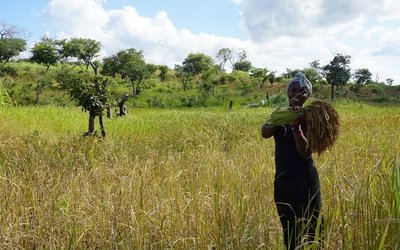
You can't eat gold, copper and gas
"The virus is spreading quicker than the information" – that was the first we heard in the Netherlands about COVID-19 in many African countries and the measures they were taking to tackle it. While states of emergency were announced, borders were closed and we saw image after image of violent police and army responses, many people outside the big cities did not know that what was going on. When the situation became clearer, serious concerns arose about the consequences of the measures that had been taken: the informal economy coming to a standstill, food shortages and internal migration flows.
-
Blog / 5 May 2020
Freedom
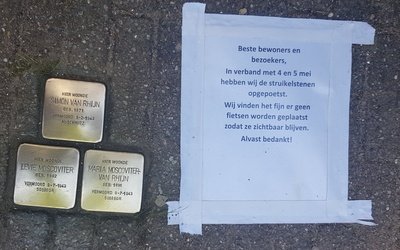 By Daniëlle Hirsch and Karin van Boxtel
By Daniëlle Hirsch and Karin van BoxtelToday the Netherlands is celebrating freedom. Our freedom goes further than living in peace. We have the freedom to discuss policy to our hearts’ content on, for example, ending the lockdown on television, in the press and on social media. We can do that freely because we know that our rights to freedom of expression are well protected. But how different that is in countries where authoritarian leaders are grasping the crisis as an excuse to throw these rights out with the trash and rule with an iron hand.
-
Blog / 15 April 2020
Now is the time! Investing in a socially just and sustainable society
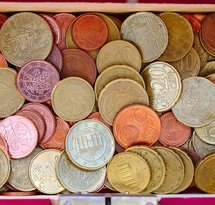 By Daniëlle Hirsch and Wiert Wiertsema
By Daniëlle Hirsch and Wiert WiertsemaAfter Dutch Minister of Finance Wopke Hoekstra had brought the fury of the Southern European countries down on his head on 26 March by blocking the European emergency fund, the Dutch were suddenly 'small-minded and selfish‘ (Parool) and we should ‘go on holiday somewhere else‘ (RTL News). The tone was set. The difficulties encountered in making agreements on support at European level contrast sharply with the speed with which the welcome support measures for employers, entrepreneurs and companies had been announced in the Netherlands two weeks earlier. We have learned nothing from our own past, while everyone benefits from greater priority for solidarity.
-
Blog / 13 April 2020
Invest International – a golden opportunity to green our trade relations
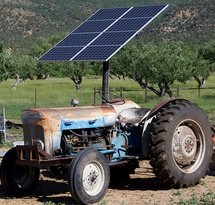 By Daniëlle Hirsch and Niels Hazekamp
By Daniëlle Hirsch and Niels HazekampSince his previous government, prime minister Mark Rutte has wanted to create a green legacy with Invest-NL and Invest International, two new financial organisations. With the advent of the COVID-19 crisis, these organisations are more important than ever. Aiming to stimulate investment in sustainable and social projects, they will operate at a distance from the government so that they can act quickly and efficiently. With an initial budget of 2.5 billion euros, they will give financial support to companies active in sectors that the market avoids and which are at the heart of the transition. At Both ENDS, we see that as an essential step in closing the door for good on our old polluting lifestyle and putting sustainability at the centre of developments in the energy sector, in the organisation of our transport and mobility system, in how we produce our food and in the design of our cities.
-
News / 19 May 2020
Effective strategy to tackle COVID-19 calls for a global reset
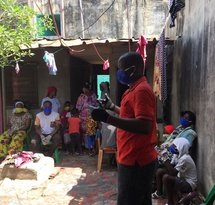
On Monday 11 May, at the government's request, the Advisory Council on International Affairs (AIV) published an emergency advisory report on how the Netherlands can make an effective contribution to the worldwide fight against the Corona virus. Together with companies, scientists and environmental, human rights and development organisations, Both ENDS is today presenting a response to this report, in which we make a number of suggestions for investing in countries and people with insufficient resources to tackle the crisis effectively.
-
Blog / 14 April 2020
Stop WTO talks until everyone can take full part in them again
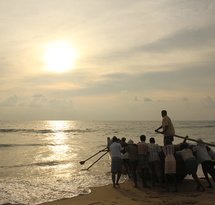 By Burghard Ilge and Daniëlle Hirsch
By Burghard Ilge and Daniëlle HirschThe World Trade Organization (WTO) is often seen as an institution in crisis, powerless and no longer relevant, and especially after US president Donald Trump decided in 2019 to pull the plug on one of the WTO’s most important bodies (the one dealing with trade disputes). Now, more than 150 civil society organisations, networks and interest groups from around the world have signed an urgent letter to WTO Director General Roberto Azevedo, because they are seriously concerned about the state of affairs within the organization.
-
Blog / 16 June 2020
The political and industrial elites in Indonesia grasp their opportunity
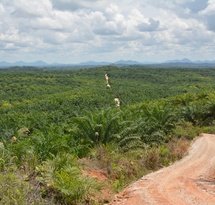
In September 2019, the streets of Jakarta were filled with angry demonstrators protesting against the Omnibus Employment Law. The law will ease the rules for mining, make it much more difficult to hold companies liable for criminal acts and severely restrict the power of the national anti-corruption committee. At the moment, such protests are completely impossible in Indonesia because of the COVID-19 crisis and the associated lockdown measures. And Indonesian people already had few other means of exerting influence on decision-making and legislative processes.
-
External link / 19 October 2020
Alarm over possible wave COVID19 corporate court cases via ISDS

Countries might face a wave of cases from transnational corporations suing governments over actions taken to respond to the Covid pandemic using a system known as investor-state dispute settlement, or ISDS. In June 2020, 630 organisations already called on governments to urgently take action to shut down this threat. With this video we invigorate this message, as the threat, unfortunately, has not decreased.
-
Blog / 7 July 2020
Blind spot for Northeast Brazil makes local organisations indispensable
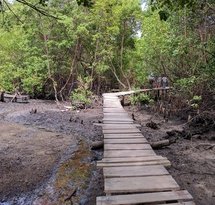 By Eva Schmitz
By Eva SchmitzPernambuco, is in the extreme northeast of Brazil, is one of the country's poorest regions. One of the most important projects aimed at stimulating development in the state is the expansion of the deep-sea port of Suape, complete with an oil refinery and shipyards. The port covers an enormous area; at 13,500 hectares it is bigger than all the different sites of the port of Rotterdam together. Unfortunately, the port lies in the middle of an exceptional and vulnerable ecosystem of mangrove forests and Atlantic rainforest, which are under serious threat from the expansion. Furthermore, the livelihoods of the approximately 25,000 people living in the area are at risk. Most of these people are so called 'traditional communities' of artisanal fisher folk including a number of Quilombola communities whose inhabitants are descended from enslaved people who have lived in this lands for hundreds of years. The communities' fishing catch is visibly declining as a consequence of industrial pollution, the most serious case of which was the oil spill that badly affected the whole coast of Northeast Brazil at the end of last year.
-
News / 29 June 2020
Global civil society pushes for mandatory environmental and human rights rules in the EU
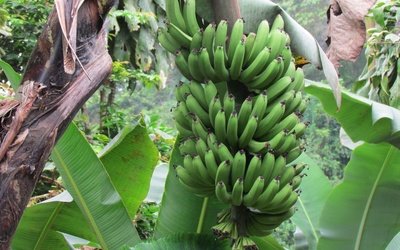
On 23 July 2020 a global network of NGOs working to strengthen corporate accountability for environmental destruction and human rights abuses, including Both ENDS, published an open letter to European Commission DG Justice Commissioner Reynders. The letter is a response to his recent commitment to propose legislation in 2021 on both corporate due diligence and directors’ duties as part of an initiative on sustainable corporate governance.
-
Press release / 29 June 2020
Press release – Call by 265 organisations to the EU: “Do not sign the EU-Mercosur trade agreement”
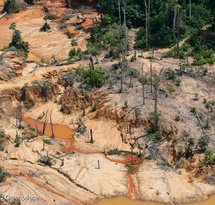
Germany must use its influence as president of the EU in the second half of this year to ensure that the controversial EU-Mercosur free trade agreement is not signed. This is the message in a letter presented to German chancellor Angela Merkel today by 265 civil society and environmental organisations from the EU and Mercosur countries. The deal between the EU and Argentina, Brazil, Uruguay and Paraguay will stimulate destruction of the natural environment and the violation of human rights in vulnerable areas in South America. The agreement will also give European farmers an unfair competitive advantage. Dutch signatories to the letter include Greenpeace and Both ENDS and various organisations united in the Handel Anders! coalition.
-
Blog / 16 April 2020
New faces are needed for a different future
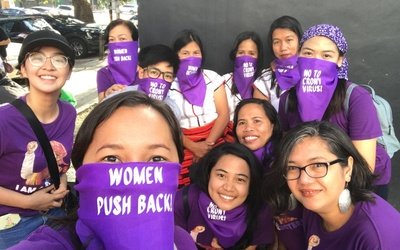
In this time of crisis-driven reflection we can read telling analyses of past and present on all sides which are being translated into agendas for action. Many of the analyses address issues like inequality, climate, the financial sector, health care, education and women’s rights. They talk about ‘what’ and much less about ‘who’ or ‘how’.But a different future can only be built together with everyone, young and old, men and women. This future will not simply happen to us; we ourselves have a hand in it. It is time for new faces around the table, with new voices. It is time for a new future.
-
Blog / 28 May 2020
South American organisations are pushing back their boundaries
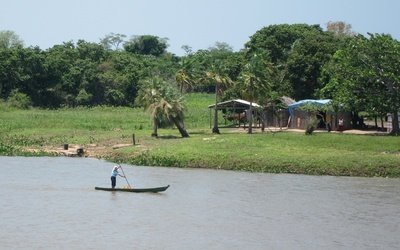 By Daniëlle Hirsch and Eva Schmitz
By Daniëlle Hirsch and Eva SchmitzThe Rio de la Plata Basin in South America extends across Argentina, Bolivia, Brazil, Paraguay and Uruguay. The livelihoods of the millions of people who live there – city-dwellers, small farmers and fishers, and indigenous peoples – are under pressure from soya cultivation, mining and logging, and by the construction of dams and ports. The COVID-19 crisis is making the situation even worse.
-
Blog / 20 April 2020
Call to Minister Kaag: do not waste time and help poor countries through local organisations
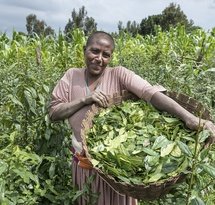
The world is turned upside down in this pandemic. Ordinary life is disrupted on our end. Many people suffer from the ‘polder lockdown’, although fortunately we have enough resilience and safety nets to meet our most urgent needs. Unfortunately, outside the Netherlands this all too often lacking. Especially in countries where public health structures are weak and where people are in a total lockdown. Because local communities that are shackled today may be hungry tomorrow. And aid and money does not naturally flow to the most vulnerable citizens there. So extra financial support is urgent.
-
News / 19 May 2020
Women from the Niger Delta demand Shell to end pollution of air and water
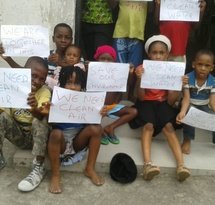
Communities in the Niger Delta have been affected by air and water pollution due to Shell's activities for decades. This year, at Royal Dutch Shell's annual meeting, Kebetkache Women's Resource and Development Centre held Shell accountable for the consequences of their activities. Clean-up of oil spillages and ending gas flaring is becoming even more urgent in the fight against COVID-19, in which clean water is crucial to prevent the spread of the virus.
-
Blog / 30 April 2020
Discovery of gas in Mozambique: blessing or curse?
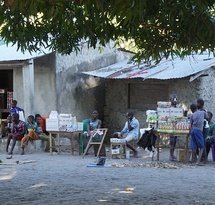 By Anne de Jonghe and Daniëlle Hirsch
By Anne de Jonghe and Daniëlle HirschCOVID-19is placing our economy under a magnifying glass. Now that a large part of global trade has come to a standstill, the tension between international economic activity and local well-being is becoming more visible. That is very clear in northern Mozambique, where one of the world’s largest gas fields was discovered in 2011. Dutch companies are investing in the processing and transport of the gas.
-
Dossier
Everything becomes fluid under pressure: behind the scenes in Corona time
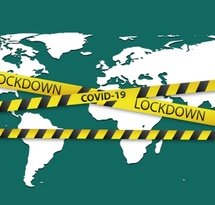
In these times of worldwide lockdown all attention is focused on the care sector, on the sorrow of those who are losing their loved ones, on children getting home-schooling and the neighbour who can no longer go the supermarket herself. Politicians and civil servants are hard at work trying to control the COVID-19 crisis and the economic crisis it has caused. -
Blog / 10 December 2021
Vaccine apartheid is a violation of human rights

Pharmaceuticals hold on to their patents and (our) governments do not remove the barriers to free production that were raised under international trade agreements years ago.
-
News / 30 June 2020
Extra export support from the government must stimulate green growth

Almost 40 civil society organisations and networks from around the world, including Both ENDS, today sent a letter to Dutch Minister for Foreign Trade and Development Cooperation Sigrid Kaag and State Secretary for Finance Hans Vijlbrief. They are asking the ministers to ensure that the expansion of export credit insurance as a result of the Corona crisis contributes to a green recovery.



